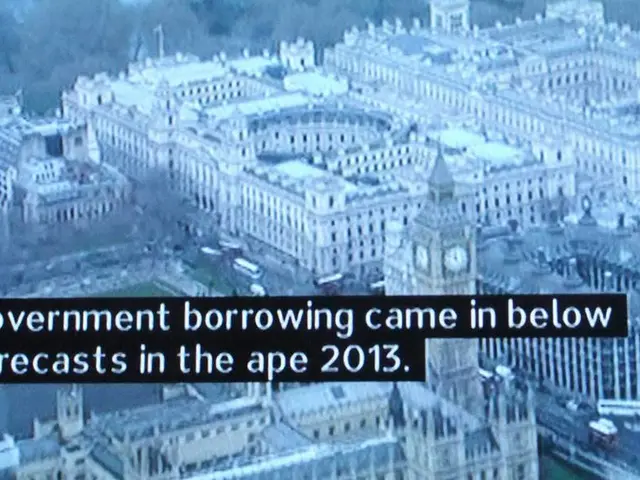Steel's Slumping Export Deathroll: Experts Point Fingers at Trump's Tariffs
Anticipated Decrease in German Steel Exports Resulting from U.S. Tariffs
Get ready for some serious steel shortage, folks! According to the Kiel Institute for the World Economy (IfW), the titanic tariffs slapped on steel and aluminum imports by none other than the comb-over commander himself, Donald Trump, will undoubtedly lead to a whopping 35% drop in German steel exports to the good 'ole US of A over the next year. But here's the kicker - if those tariffs got halved, that same drop could still be as much as 20%!
The tariff hike from 25% to a monstrous 50% last week is when things really started to sour for German steelmakers and exporters. This doggone duty dive will likely put a major dent in their profits, as pointed out by IfW, and it's a dog-eat-dog world out there!
Now, if you're wondering what this means for German steel production, well, prep yourself for a ain't-no-cakewalk scenario. The IfW predicts that production in Germany could nose-dive a staggering 5.1% due to these tariffs, if they stay put at 50%. If that number gets shaved to just 25%, the estimated decline would only reach a still-grim 2.7%.
So, what about those trade negotiations between the EU and the US, and Chancellor Friedrich Merz's (CDU) proposed bilateral talks on trade issues? Well, it's safe to say that they might just need to get their ships in order before the steel storm hits!
Sources: ntv.de, AFP
Enrichment Data: These tariffs have been a contentious issue in international trade, with many experts claiming they disrupt the global supply chain and stifle economic growth. The steel industry is particularly vulnerable due to its heavy reliance on exports and its energy-intensive production processes. Some have even likened the tariffs to a "protectionist barrier," with critics claiming they unfairly favor domestic industries at the expense of foreign competitors.
The Community and Employment policies within the affected industries might need to adapt to the disruptive impact of Trump's tariffs on steel exports, considering the potential drop of up to 35% in German steel exports to the United States over the next year. This financial burden could influence the general-news landscape, as policymakers and stakeholders address these challenges in the realm of politics.







